Road Construction in Kurdistan: Senk Group
Kurdistan is a baby tiger growing in the mountains of the Middle East and it is the second fastest growing region in the world according to the World Bank. Mr. Zedbagi explicitly comments on what more should be done to improve the overall business climate in the Kurdistan Region. He also decribes the process of road construction within the Region and what makes Senk Group an ideal investment partner in Kurdistan.
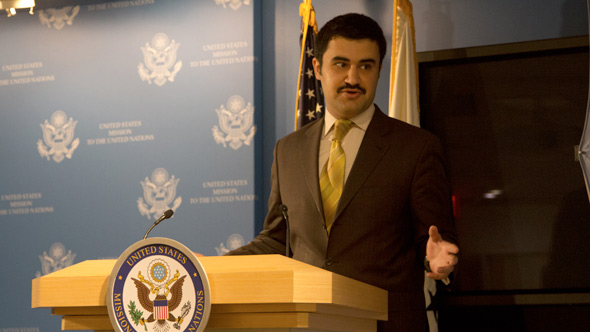
Firstly, how do you feel about the business environment in the Kurdistan region?
I Believe in Kurdistan! I believe Kurdistan is a nation with a booming economy; it is a very virgin market and a land of opportunities. We all know that Kurdistan has a big amount of oil and gas reserves, but I believe we should not only depend on the oil and gas. Kurdistan should also get benefits from other natural resources such as the historical sightseeing including the Citadel of Hawler (Erbil), which is the oldest continuously habited place in the world. This could be the prime spot for tourists, and we have many similar places and monuments like the Citadel in Kurdistan beside that we also have a lot of breathtaking mountains, waterfalls, wild life, national parks and many four season spots.
Kurdistan has a very rich land so the opportunities to invest in agriculture are there.
Also, the location of Kurdistan gives it main advantages in terms of transportation. If you look at the map, you will see that Kurdistan is the main gate connecting Europe to the Gulf area. This route is the shortest way – without getting onto the sea.
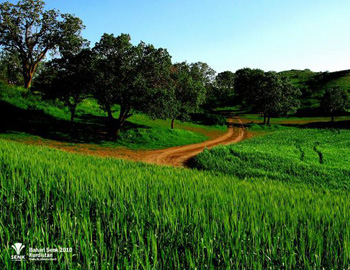
Kurdistan is now very strongly represented on the global energy map. However, we should also try to put ourselves on the global food map, the global tourism map or even the world transportation map.
I believe we should be another South Korea or Norway, not another Dubai.
I believe that Kurdistan is a baby tiger growing in the mountains of the Middle East. According to the World Bank, Kurdistan is the second fastest growing region in the world. Our economy grew by 11% last year. The GDP of the Kurdistan region is also expected to grow by 12%.
Could you describe the internal and external business environment in Kurdistan?
In terms of the internal business environment in Kurdistan, we have improved a lot in terms of the HR, finance, machinery and management of domestic companies. However, we need to acquire more knowledge and know-how and follow the international standards guiding the internal environment of businesses. In my opinion, our domestic companies should try more to merge or to have joint ventures with international corporations. We should encourage those to come to Kurdistan because we are fully aware of the domestic issues and on the other hand, they have the right know-how and they know how to do things better. Thus together, we can make everything way better than it is now.
In terms of the external environment including the legal issues, politics and geo-demography of Kurdistan, we are also improving a lot on that front and we are on our way to feed the region with development and get benefits from our external environment.
I believe that Kurdistan is a baby tiger growing in the mountains of the Middle East. According to the World Bank, Kurdistan is the second fastest growing region in the world.
This is a risky region and many foreigners perceive Kurdistan as a risk, a high political risk. As you were growing up in the region you exactly know the situation here. Have you noticed there is a political risk?
There is no political risk inside Kurdistan. All the political parties are Kurdistani and they all have one aim in the end. Of course, each party has its own way to do politics, but they all want benefits for Kurdistan.
Regarding the relations with Iraq, until the constitution remains in place there is not going to be any big problem. There might arise problems if the constitution was banned. Kurdistan has security and its own security force Peshmerga and therefore it is always able to protect itself, its territory and businesses. Actually these businesses are a guarantee for Kurdistan to not go back but continue to further develop itself, because today it is economic muscle not military might that now determines the international balance of power.
I believe there is no high risk in Kurdistan when we compare it to the other regions within Iraq. That’s why people call Kurdistan “the Other Iraq”. In terms of the conflict over Kirkuk, there is a law (140) to solve this conflict. Yet the law hasn’t still be active the way it should be. The law is a part of the constitution and so both parties should choose the path of peace because there is no time for war. I’m not saying I’m very optimistic and everything is going well, but I say there won’t be a major conflict, which would hurt the businesses present in the region.
I really do believe there isn’t any threat, which would stop companies from coming to Kurdistan.
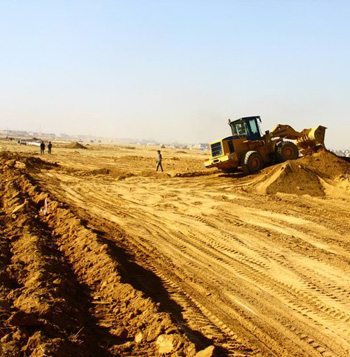
What has been already done and what more should be done to improve the overall business climate in the Kurdistan region?
What has been already done is the actual high level of security present in the region. We have a very tight, protected and guaranteed security in place. I consider security to be the most important element. Whenever there is security, people are open and ready to invest their money. If there is no security, even the locals won’t invest their money. If Kurdistan wasn’t secure, the Kurdistani will invest outside of the region. So thanks to the security we have, there are many international companies coming and investing in Kurdistan. This high level of security has helped us to improve the business climate in Kurdistan.
Secondly, Kurdistan has an awesome investment law, which helps any investor – local and international – in the same way. Thanks to this law, Kurdistan is a very favourable place for investment. The law facilities the investment in a number of ways. For example, the investor can fully own the land, he doesn’t have to pay any tax, any customs etc. Many international or multinational companies are now investing in Kurdistan just because of the rights given to them by the investment law.
Thirdly, there has been a notable improvement in finance. We have more than 50 foreign banks present here and there are other banks on the way. The infrastructure – including the internet, roads hospitals etc. – is also steadily improving.
Nevertheless, our to-do-list is a very long one. We still need more infrastructure, and we need a data centre. Investors require information in order to make their business plan according to it. We need solid and concrete information; we can’t tell them we are guessing these figures. 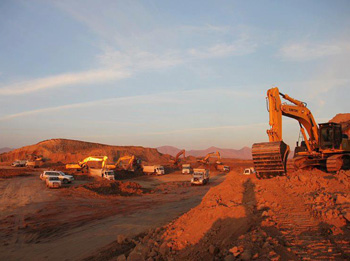 The data centre would gather all information regarding the region, available for anyone. Some information is already available but people generally don’t know where to look for it.
The data centre would gather all information regarding the region, available for anyone. Some information is already available but people generally don’t know where to look for it.
We also need greater transparency. Big global corporations are never going to come to place which lacks transparency. These corporations have many shares owned by different people and thus, if such a corporation invested in a corrupted area, it would hurt all its shareholders. Therefore, Kurdistan has to be very transparent and we have to stop any corruption in order to enable the arrival of big corporations into Kurdistan.
Lastly, we need to further improve in finance. Kurdistan is in need of bigger international banks, which will help other businesses to finance their projects within the region.
What is the general state of transportation and roads in Kurdistan?
We have about 357 km of paved roads of good quality, which are considered to be highways. Then we have about 2,499 km of one-lane roads. There are also 4,086 km of secondary roads. The total of rural roads is around 3,000 km.
Kurdistan is a part of Iraq and it experienced numerous wars in the past 100 years. Therefore, the state of our roads and all transportation means is very low or of low quality. Since 2003, we have been able to build a lot of new roads but it is still not enough. Kurdistan needs more roads that will interconnect cities, towns and villages. A road is a very crucial need of life; life is spreading thanks to a road. When a road is going to a place, then everything is going there. If there is no road, people are not going to get there. Roads are very important for the development of agriculture. They are also essential for villages to renew themselves. A good life guarantees an increased (agricultural) production. There are many benefits from having roads, which interconnect all the places. It is not about city to city connections; each city needs to connected to each town or village, so that they are very well accessible.
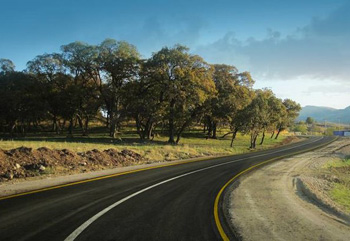
At the moment, the government is doing a lot in order to build all these roads, but there is still a lot to be done in this regard. The most important and impactful road is the one connecting Europe to the Gulf area. Kurdistan is the best shortcut in this regard. If we have a good highway starting from Zakho (the gate to Turkey and Europe), going down to the last point in Kurdistan then connect with Basra (the gate to golf), alongside with a good railway, it will be the best for Kurdistan and the surrounding countries. It will also be very beneficial for all sorts of businesses and sectors like logistics etc. This road could be in a form of a toll road, built by a company or the government. The best investor for this toll road would probably be an international company. I can guarantee the return on investment will be very fast, perhaps in 2-3 years. This road would be very busy because Kurdistan (and Iraq) is importing all materials from Turkey, Iran, the Gulf and Europe, so the road would serve as an access to these countries and areas and the road will connect Europe to the Gulf area without getting onto the sea. I see a very big potential and opportunity in this toll road.
It is important to mention the dams. As Kurdistan has large reserves of water, a lot of underground and overground since we have abundance of rain, the water is now just soaking into the soil and we don’t have any benefits from it. We need to store it to get the benefit out of it (for agriculture, tourism, electricity etc.). There are only two big dams in Kurdistan at the moment and they are not sufficient enough. I feel the dams are a very big opportunity for investors, who will then get their money back from the government.
Few good dams would be very beneficial not only for Kurdistan itself but for the whole region. You cannot stop the flow of water and that’s why everyone can benefit from it.
Kurdistan needs as well water sewage for the light and heavy water. We lack the water sewage infrastructure. The government doesn’t have money to invest in this kind of project, so it would be an opportunity for an international investor. All the above-mentioned project will require a lot of money. To illustrate it on an example, let’s just take the road from Zakho to Halabja – within Kurdistan – about 800-900 km long. This road and railway would together cost no less than US $3-4 billion.
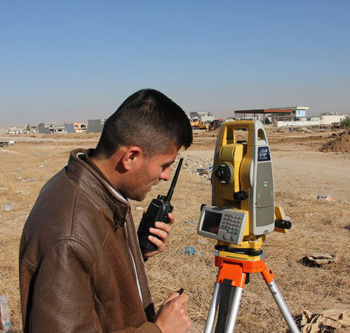
The KRG`s strategic development plan is to improve all areas of the infrastructure sector, including the post office (by 15%), transportation (by 10%), IT (by 10%), roads (by 15%), residential units (by 15%), the quantity and quality of water (by 15%) etc. The strategic development plan to have an annual improvement and growth of 10-15%, depending on the area. So the government should improve each of these areas by 10-15% annually.
What are some of the projects Senk Group is working on at the moment?
We are currently working on the Erbil-Koya highway.
How can investors take part in the reconstruction process of Kurdistan?
There are two ways for investors to take part in the reconstruction process of Kurdistan Contracting or Investing.
There is always a tender organized by the government for contractors. (If you are doing an investment, you don’t need to go through tenders, you are directly talking to the government and dealing solely with them) But if a company wants to get a project from the government as a contractor, they have to bid a tender.
There are three categories of projects: small, middle and big size projects, in the small size projects the government will do an open tender in which everyone can participate and get the project. In the middle size projects, then the government is more concerned – they are asking for prequalification and not all the companies are invited to participate. It is more complicated; the invited companies are required to have previous experiences etc. In the big size projects, it is very important to the government, so they are really taking care of those projects. Only very few companies are invited to participate. The government is carefully reviewing their profiles and then they enter a prequalification period. Only a few will pass this period and then participate in tendering and they are bidding for the price. Only the companies offering reasonable price will succeed, it is not always the low price that wins.
I’m not sure about how it works in Iraq, but their (tendering) process should be very similar to ours. Kurdistan has transparent tenders, but I’m not sure about the Iraqi transparency in this regard.
Because I was born and raised here in Hawler (Erbil) I remember Hawler since 1991. I have witnessed its progress. It has changed so much since 2003. There are huge differences; it is changing positively all the time. I believe Kurdistan will be very progressive in ten years. By that time, Kurdistan will establish itself as a very good market in the Middle East.
Are the tendering processes really that transparent? Particularly the construction projects tenders are internationally recognized to be closely connected to corruption. What is your experience?
From my experience I would not say it is 100% transparent, but there isn’t definitely a big corruption. The process is very clear, companies enter the tender, maybe sometimes some individuals in committees are choosing certain prices. But there is no such thing that if you propose lower and at the same time reasonable and doable price, they won’t give you the project – no. If you are able to prove your breakdown, then the government will assign you the project. If you can’t prove it and it seems to them not feasible or doable, you won’t get the project. Sometimes the fourth company (offering the fourth lowest price) is assigned the project.
It is a system and I admit it is not always perfect; there might be some projects, which are not assigned this way. but what I described above is the proper way it should be done. Probably 80% of projects are assigned in the above-mentioned way, especially the major projects which are publicly talked about. I’d suggest to the big companies who are heading to Kurdistan to rather invest, for example in the toll road I already talked about.
Let’s now talk about Senk Group. What makes the group an ideal partner for investors?
We are seeds of road construction, we have a strong roots and networks of people who believe in us and we believe in them, we have talent, know-how, sources and “can-do” attitude.
Senk Group is an entrepreneur; we are taking the risk, which others don’t take. We are very transparent everyone knows what exactly we are doing. We are also a wise company; our projects are modern and at the same time low-cost because we don’t over-spend unwisely we have strong procurement skills. We share values and skills; we enrich any business (partnership) we are in with our skills and experiences. 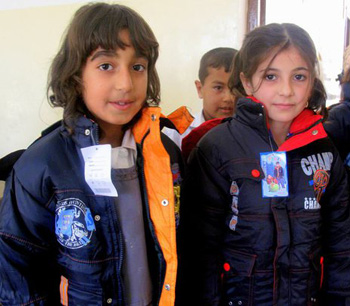 When we have a partnership with a company, Senk Group always offers the partner company its resources and equitability. Also, Senk Group is very ethical; we do our business with ethics. We believe in win-win business. Lastly, we have very stable and strong financial.
When we have a partnership with a company, Senk Group always offers the partner company its resources and equitability. Also, Senk Group is very ethical; we do our business with ethics. We believe in win-win business. Lastly, we have very stable and strong financial.
All these points make us an ideal partner for (foreign) investors.
What are the values of Senk Group? What is the mission and strategy of the Group?
Our core value is rebuilding a better Kurdistan infrastructure in shortest time, best quality, and lowest price possible.
Our mission is simple: we are building to be the best.
Our strategy is developing more joint venture partnerships with more international companies besides investment in the other areas than construction.
You have co-founded Senk Group and you built it with your own hands. What is your philosophy and personal belief when it comes to the Group?
We found Senk Group in 2000 and it is a group of different companies. We started with road construction – it is our mother business which we have been doing until now. We implemented 18 projects in construction until now, including the roads, bridges and other infrastructure, and these construction projects represent 80% of our business. Senk Group is also active in other businesses such as trading of heavy equipment, real estate and education.
We established Senk Group to become a bridge connecting cities, towns and villages. As I already said, when you have a road to a place then life is going to that place. When a town has everything and it is a paradise but there is no road going there, then what is the benefit of that paradise if others can’t get there? If you have a road to the town, people can access it.
Kurdistan needs to revive and renew its villages and towns and revive the life within them. Senk Group believes the road is the first way to help revive these forgotten and war-damaged places. We always keep in mind that whatever we start doing, it is always about business and development. We are not doing business just for the sake of doing business. We are a profit organization, but besides that we always want to develop our country. When we do the trading of heavy equipment, we also try to help the environment and communities. For example, we trained a lot of people for working with machines to become good operators. These machines are environment-friendly machines.
Senk Group have been also active in the area of education. We established an institute to teach people English language and computer. We teach and trained people without education for occupancies they would like to do in order to earn their own money later on. All these are the core values of Senk Group.
The Group also established Senk Care Foundation. We allocate 15% of Senk Group’s yearly net profit to this non-profit organization. The Foundation’s focus is the development in education, health and youth. Education, health and security are the most essential things we need right from our birth in order to become productive and develop ourselves later on. People always need good education, good health and security. As the security is already present in Kurdistan, the Foundation is trying to help with the education and health. We have a lot of education programs in Kurdistan, for example we have a project to encourage high school students before taking the Ministry exam. The top ten students in Kurdistan are awarded with a device like an iPad, computer or a smart phone. This reward encourages all student to try hard to get on a university and it also encourage other high school students, who are going to have the Ministry exams next year or so, to get the highest scores. For this purpose, we are always organizing a big event; we invite Ministers and their families and friends and it is an honor for the awarded students to stand up on a stage in front of this type of audience. We don’t give them only the device but also prestige. We give the students an encouragement and a feeling that someone is taking care of them. We also have a project to support villages in the poorer regions of Kurdistan. We provide all students in these areas with stationery items and coats. We have many ongoing education projects and at the same time we have some in the health and youth sector.
We believe these projects are the core value of what we are doing. It is our dream: we want our life to be about helping others. We want to guarantee our future.
What are the major challenges of Senk Group? Is it the competition or the lack of resources?
We have two main challenges. The first is the bidding process. As I said, the company offering the lowest reasonable price will get the project. When you lower the price, the quality goes down, too. So it is a challenge for us to come up with a low but reasonable price because we cannot be too expensive. Thus we are trying to have the lowest possible price but we are, at the same time, keeping our eyes on the quality. It is very difficult for us to reach this equilibrium of having low price and good quality at the same time. However, we have partially solved this issue – we have our own machinery. Having this machinery helps us to offer lower price. I think the government should slightly amend the bidding process because the pricing is quite challenging at the moment. Sometimes there are companies who win the project even though they don’t deserve it. They only win it thanks to the lower price they proposed. I think the government should examine more the qualification, breakdown and the proposed price of the companies within the bidding process. I’m not saying they should give the project to a company with a higher price; however, the price should not be their main concern. Each element like the age of the company, their references, how much resources they have, qualification, their bank guarantee, the breakdown of each item etc. should have the same influence in their decision-making.
The other challenge arises during the implementation of a project. We have a liquidity challenge; we usually don’t have enough liquidity. We always spend a lot of money on the construction of infrastructure in very short time. The problem is it takes time to get the money back from the government. If you are lucky, it will take a month, otherwise it takes two months or more. Imagine a construction company works two months, then it makes the payment and it gets the payment back in two months, so in the end it all takes four months and a lot of money. All construction companies in Kurdistan face this challenge. Senk Group suffers less thanks to our own machinery. We usually owe the market the fuel and raw materials. Yet whenever we don’t have money we face problems with our sub-contractors and this is not good for our image at all. It quite hurts the Group`s image and credibility it has in the market. Therefore, I’d suggest the government to give an advance payment (of 5-10%) prior to the start of a project and to take a bank guarantee from the contractor for the amount of the advance payment. Having the money (in the form of advance payment) would help the contractor to speed up the implementation of the project. It would also decrease the overall cost of the whole project because the prices of raw materials are lower when you pay in cash than you pay after 2 months. As you know, loans are always more expensive than paying in cash.
But you are still making a profit.
Yes, the average net profit for a construction company in Kurdistan is about 15-25% of the middle-budget project’s cost. The net profit really depends on the type of the project itself; it may sometimes be as low as 5%. The amount of the net profit also depends on the prices of raw materials, exchange rates etc. In case of the projects worth more than US $100 million the net profit will be about 5-10%.
How many employees does Senk Group have at the moment?
At the moment we have the management staff and the staff dealing with the implementation of our projects. We have about 200-300 employees on site right now. There is no exact number because we are a construction company, the number is changing all the time.
Who are your main competitors?
Our main competitors are Turkish construction companies which are doing very well in Kurdistan at the moment. They have most of the big ongoing projects in their hands.
Our competitors are also the local companies here which are participating in tenders alongside with Senk Group.
There are also some Romanian companies, but they are not doing well at the moment. They were bidding for some projects, but they didn’t succeed because their proposed price was too low.
What is the size of Senk Group when compared to the Kurdish market?
As for Kurdistan, Senk Group is a big-size company, but according to international standards we are a medium-size company. We are one of the top (number one) companies within the road construction sector in Kurdistan.
Do you think the government is doing enough to support and protect the local enterprises?
The government should protect the local business and thus enable them to grow and expand. For example, if a Turkish or other foreign company gets a project, we are happy because they are doing it for us, for Kurdistan. But what about the local companies? Are they supposed to shut down and sit at home? Or they might act as a sub-contractor but then they wouldn’t learn anything new. If I were the government, I would say to any international company coming to Kurdistan to first establish a partnership with a local company and only then apply for the project. This would help our local companies to get closer to the level of international companies and merge with them. Their management skills would improve dramatically.
Currently we have a partner from Turkey.
What do you think is going to happen in ten years?
Because I was born and raised here in Hawler (Erbil) I remember Hawler since 1991. I have witnessed its progress. It has changed so much since 2003. There are huge differences; it is changing positively all the time. I believe Kurdistan will be very progressive in ten years. By that time, Kurdistan will establish itself as a very good market in the Middle East.